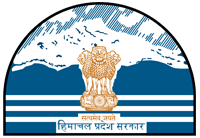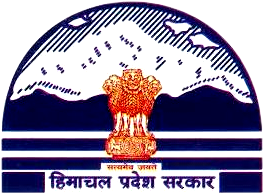MES Scheme
Vocational Training Providers under the Skill Development Initiative Scheme (SDIS) based on Modular Employable Skills Training
The skill level and educational attainment of the workforce determines the productivity as well as the ability to adapt to the changing industrial environment. A majority of Indian workforce does not possess marketable skills which is an impediment in getting decent employment and improving their economic condition. While India has large young population, only 5% of the Indian labour force in the age group of 20-24 years has obtained vocational skills through formal means whereas the percentage in industrialized countries varies between 60% and 96%. About 63% of the school students drop out at different stages before reaching Class-X. Only about 2.5 million vocational training seats are available in the country whereas about 12.8 million persons enter the labour market every year. Even out of these training places, very few are available for early school dropouts. This signifies that a large number of school drop outs do not have access to skill development for improving their employability. The educational entry requirements and long duration of courses of the formal training system are some of the impediments for a person of low educational attainment to acquire skills for his livelihood. Further, the largest share of new jobs in India is likely to come from the unorganized sector that employs up to 93 per cent of the national workforce, but most of the training programmes cater to the needs of the organized sector.
Honble Minister of Finance during the budget speech 2005-06 made the following announcement:
To meet the demand for specific skills of a high order, a Public Private Partnership between Government and Industry is proposed to promote skills development programme under the name Skill Development Initiative
Accordingly, Ministry of Labour & Employment undertook development of a new strategic framework for skill development for early school leavers and existing workers, especially in the un-organised sector in close consultation with industry, micro enterprises in the un-organised sector, State Governments, experts and academia which was essential considering their educational, social and economic background. The main objective of the scheme is to provide employable skills to school leavers, existing workers, ITI graduates, etc. Existing skills of the persons can also be tested and certified under this scheme. Priority will be given to covering those above the age of 14 years who have been or withdrawn as child labour to enable them to learn employable skills in order to get gainful employment. it is hoped that this website will help in dissemination of the information about the scheme and bring transparency. It will also helpful in getting valuable feedback from stakeholders and public at large.
The objective of the scheme are:
I. to provide vocational training to school leavers, existing workers, ITI graduates, etc. to improve their employability by optimally utilizing the infrastructure available in Govt., private institutions and the Industry. Existing skills of the persons can also be tested and certified under this scheme.
II. to build capacity in the area of development of competency standards, course curricula, learning material and assessment standards in the country.
Key Features of the Scheme are:-
I.Demand driven short term training courses based on Modular Employable Skills (MES) decided in consultation with Industry. MES is the minimum skills set which is sufficient for gainful employment.
II. Central government will facilitate and promote training while industry, private sector and State Governments will train the persons.
III. Optimum utilisation of existing infrastructure to make training cost effective.
IV. Flexible delivery mechanism (part time, weekends, full time, onsite/ offsite) to suit needs of various target groups.
V. Different levels of programmes (Foundation level as well as skill upgradation) to meet demands of various target groups.
VI. The services of existing or retired faculty or guest faculty to be utilized.
VII. Courses would also be available for persons having completed 5th standard.
VIII. Testing & certification of skills acquired informally.
IX. Testing of skills of trainees by independent assessing bodies, which would not be involved in training delivery, to ensure that it is done impartially.
X. The essence of the scheme is in the certification that will be nationally and internationally recognized.
MES would benefit different target groups like :
- Workers seeking certification of their skills acquired informally
- workers and ITI graduates seeking skill upgradation
- early school drop-outs and unemployed
- Previously child labour and their families
| Sr. No. | Target Group | Training | Testing & Certification of Competencies | |
|---|---|---|---|---|
| Skills acquisition | Skills up- gradation | |||
| 1. | Workers | p | p | |
| 2. | Less educated/ Out of school youth/ unemployed | p | p | |
| 3. | ITI graduates | p | p | |
In this regard it is intimated that under Skill Development initiative scheme (SDIS) based on Modular Employable Skills Training is provided in different ITIs / VTPs the field of Eighteen sectors namely: Automotive Repair, Banking and Accounting, Beauty Culture & Hair Dressing, Electrical, Electronics, Garment making, plastic processing, fashion design, Information and Communication Technology, Fabrications, Printing, Production and Manufacturing, Refrigeration and Air conditioning, Toy making, paint, construction, wood work and Industrial Electrical. There are 77 nos of Vocational Training Providers as on date. They are:-
Under Govt. Sector (Govt. ITIs 58 Nos)
1. Shamshi 2. Solan 3. Kausauli (W) 4. Nalagarh 5. Paonta Sahib 6. Shahpur 7. Chamba 8. Nurpur 9. Palampur(W) 10. Nehranpukhar 11. Dharamshala(w) 12. Recongpeo 13. Jubbal 14. Rampur 15. Hamirpur(W) 16 Nadaun(Rail) 17. Lambloo 18. Sujanpur Tihra 19. Bhoranj 20. Sunderngar (PH) 21. Thalaut 22. Batail 23. Chachiyot 24. Bagsiad 25. Jogindernagar 26. Paplog 27. Mandi 28 Mandi(W) 29 Sainj 30. Kullu 31 Arki 32. Nalagarh (W) 33 Deegal 34. Garhjamula 35. Saliana 36 Talwar 37. Dhameta 38. Jawali 39. Gangath 40. Nahan 41. Bogdhar 42. Nahan (W) 43. Rajgarh 44. Bani 45. Tissa 46. Garnota 47. Shimla 48 Sarahan 49 Una 50 Bagana 51. Baroh 52. Berthin 53. Bilaspur 54. Bilaspur (W) 55. Swarghat 56. Dadasiba 57. Sandhole 58. Bhadrota.
Under Private Sector (Pvt. ITIs & Trusts 28 Nos)
1. SDSJ ITC Village Nagli Barog Hills Barog Hills Distt. Solan 2. Bishawajeet ITC Dhanotu Mandi H.P. 3. Maa Jawala ITC Majeen Chowk Bharoli Jawalmukhi Distt. Kangra H.P. 4.. Aim ITC Thakurdwara National Highways road Maranda Palampur Distt. Kangra H.P. 5. Christain Techno Medical ITC NearP.O. Dhalpur Distt. Kullu H.P. 6. Batt ITC VPO Khusnagri Tehsil Churah Distt. Chamba H.P. 7. PC Memorial ITC Sansarpur terrace Distt. Kangra H.P. 8. Modern ITC VPO Pragpur Tehsil Dehra Distt. Kullu H.P. 9. Krishna Food Crafts ITC ward no 3 Partapnagar Hamirpur H.P. 10. Happy young ITC Naya Bazaar BBMB Colony Sundernagar Distt. Mandi H.P. 11. Ravinder Nath Tagore Memorial ITC Him Auto Building Kamli road sector-I Parwanoo Distt. Solan H.P. 12. Sh. Roshan Lal Sethi Chariable & Education Trust H.N. 106/1 Jawaharnagar Mandi H.P. 13. Yog Manav vikas Turst Banikhet Distt. Chamba H.P. 14. Rotary Parwanoo Vocational and Community Centre Society Plot no. 17 sector -5 Parwanoo Distt. Solan H.P. 15. Vocational Rehabiliation Centre for Handicapped Distt. Una H.P. 16. Ressis ITC Floor near State Bank of Patiala Nagrota Bagwan Kangra H.P. 17. Sahid Diwan Chand Katoch ITC Baijnath Distt. Kangra H.P. 18. Career Point Vocational Training Providers near SDM Office Bhoranj, Distt. Hamirpur(HP) 19. Everest ITC Village Sarkoti Nirmand Distt. Kullu H.P. 20. MD ITC Nohradhar via Rajgarh Distt. Sirmour H.P. 21. Optech vidya ITC City Heart Hotel Una road Amb Distt. Una H.P. 22. Vertex VTC Kotla Nala Rajgarh Road Solan 23. Indian Institute of Skill Development, Sector-3, Opposite ESCI Hospital Road Pawanoo Solan, 24. Kiran ITC/VTP Ulhli, Distt. Hamirpur, 25. Jagriti VTP Uhal Hamirpur, 26. Maa Jawala VTP Parel P.O. Sultanpur Chamba, 27. National Association for the Blid HP. Abha Memorial Bhawan Kullu, H.P. 28. Composite Regional Centre for persons with disabilities VTP near Mahamaya Temple Sundernagar, Distt. Mandi(HP).
Training Fee of MES Courses:- Following training fee which includes cost of material, honorarium, etc. has been prescribed:
I. Rs.500 per module for modules having duration upto 90 hrs.
II. Rs.1000 per module for modules having duration from 91 to 180 hrs.
III. Rs.1500 per module for modules having duration from 181 hrs to 270 hrs.
IV. Rs.2000 per module for modules having duration more than 270 hrs.
Candidates belonging to SC/ST category and women will be given relaxation of 25% in fee. In order to motivate trainees to take the training programme seriously, training fees of all those trainees who successfully complete the training would be refunded to them. The fee structure has been prescribed initially for one year and if required, the Apex Committee may revise the training fee.
Assessment/Testing Fee :-
The assessment fee will be Rs.300-800 depending on the skill area. The assessment fee for an engineering course (requiring workshop, equipment, raw material in addition to class room training) will be Rs 800/- per trainee per course and assessment fee for a non-engineering course will be Rs 500/-. The assessment fee will be reimbursed to all the successful persons who have received training from approved VTPs.
Testing and Certification:-
DGE&T (Directorate General Employment & Training), Ministry of Labour & Employment, Govt. of India will appoint assessing bodies to assess the competencies of the trained persons. The assessing body will be an independent agency, which will not be involved in conducting the training programmes.
The essence of the scheme is in the certification that will be nationally and internationally recognized. Successful persons will be awarded certificates issued by National Council for Vocational Training (NCVT).








